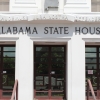|
Getting your Trinity Audio player ready...
|
The right to vote is a fundamental political right, preservative of all other rights. So said the Supreme Court more than 130 years ago.
Yet, for the last decade, the court has abandoned this foundational principle.
The harm it allowed through the 2013 Shelby County v. Holder decision was easily predicted.
For decades, the Voting Rights Act (VRA) of 1965 blocked discriminatory voting laws before they could take effect.
It served as a bulwark against the forces that had, throughout our history, sought to silence and suppress the voices of millions of voters of color—from Latino voters in California, to Native American voters in South Dakota, to Black voters throughout the South, including in my home state of Alabama.
The law worked.
A study by the Brennan Center for Justice showed that, during a 24-year period of its coverage, the VRA blocked more than 1,000 proposed discriminatory changes to voting laws across the country.
When the court agreed to hear arguments in Shelby County, the threat to the VRA was evident.
Amicus briefs from Black elected officials in Alabama, veterans of the civil rights movement from Mississippi, constitutional scholars, the American Bar Association, and even Republicans members of the House of Representatives all warned the court of the dangers of weakening the VRA.
By a slim, 5-to-4 majority, the court disregarded these warnings.
In one of the most damaging decisions to our democracy in our nation’s history, the court gutted the Voting Rights Act. The Shelby County decision eliminated the VRA’s ability to prevent states and municipalities from enacting discriminatory voting laws.
Unsurprisingly, the flood gates opened. Immediately.
Within 24 hours of the ruling, Texas announced it would implement a restrictive voting law that would have been blocked by the VRA.
Within days, Alabama announced it would move to enforce a restrictive voter law it had previously refrained from submitting to VRA scrutiny.
In North Carolina, the state legislature enacted a law that a federal judge found to have targeted Black voters with “almost surgical precision.”
These states weren’t alone. Following the decision, a wave of restrictive voting bills, extreme gerrymandering, voter roll purges, and polling location closings—all targeting voters of colors—swept the country.
Within five years of the decision, jurisdictions previously subject to VRA review purged voters from their rolls at a significantly higher rate than other jurisdictions.
Within eight years, one state alone—Texas—closed at least 750 polling locationsthat were disproportionately in neighborhoods with high percentages of voters of color.
Through it all, pro-voter advocates and lawmakers have not stopped fighting to protect our right to vote.
Earlier this month, another Supreme Court decision has given us reason to hope.
In Allen v. Milligan, the Supreme Court deviated from its recent anti-voter decisions and affirmed that Alabama had racially gerrymandered its congressional map.
Black Alabamians, who had been denied the opportunity engage equally and meaningfully in congressional elections will now have fair districts and the ability to have their voices heard in Congress.
This decision imperils racially gerrymandered districts around the country.
The Milligan decision is energizing. But it is far from enough.
We cannot rely on this Supreme Court, or the courts generally, to consistently protect our freedom to vote. We must, together, act.
Congress must pass the Freedom to Vote Act and the John R. Lewis Voting Rights Advancement Act. Together, these bills restore the Voting Rights Act and establish national standards that ensure all eligible Americans have access to the ballot, regardless of which state they live in.
We must also engage in robust voter education and outreach efforts, empowering communities with knowledge and resources to help overcome anti-voting barriers.
As we mark the 10-year anniversary of the Shelby decision, I’m convening civil rights and voting rights leaders at the historic 16th Street Baptist Church in Birmingham.
We’ll strategize on a path forward to reverse the damage caused by Shelby and other anti-voter attacks.
Our goal is to envision a pro-voter future, celebrate recent victories, energize the grassroots, and galvanize support for our legislative efforts.
Generations of Americans fought for the right to vote, many in my district, overcoming barriers and violence to move us forward in this fight for democracy. The people of Alabama and this country have marched, bled, been jailed, some even died, for that right to vote.
As a daughter of Selma, representative of Alabama’s 7th Congressional District, and ranking member of the House Administration Committee Elections Subcommittee, I know deeply the commitment that exists in this country to protect the right to vote and expand access to the ballot.
Our elections are the foundation of our democracy. They give everyone an equal voice in the systems that govern our lives. Together, we can ensure the sacred right to vote exists for all Americans.
Rep. Terri Sewell represents Alabama’s 7th Congressional district and is the Ranking Member of the elections Subcommittee on the House Administration Committee. She is the author of the John R. Lewis Voting Rights Advancement Act.























































